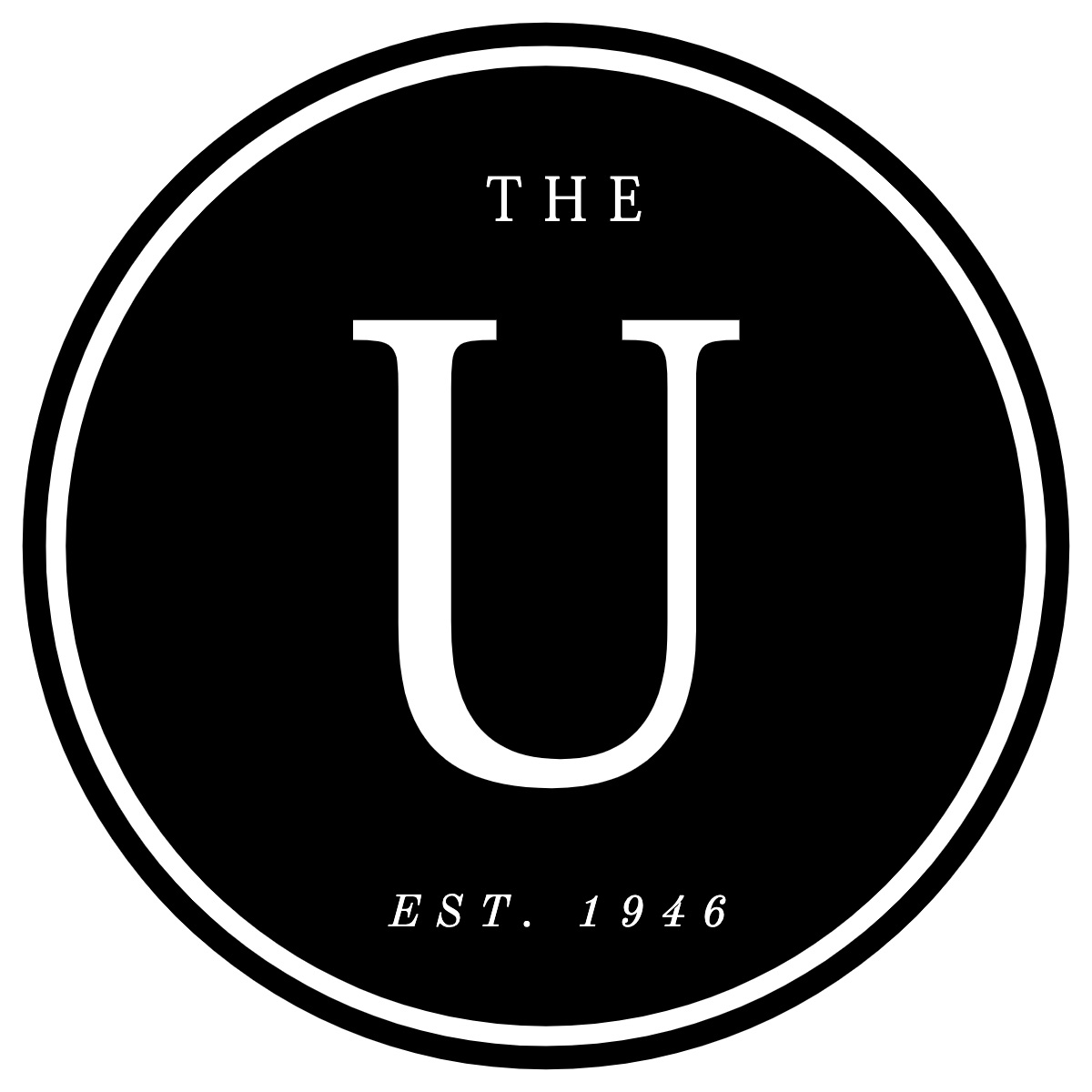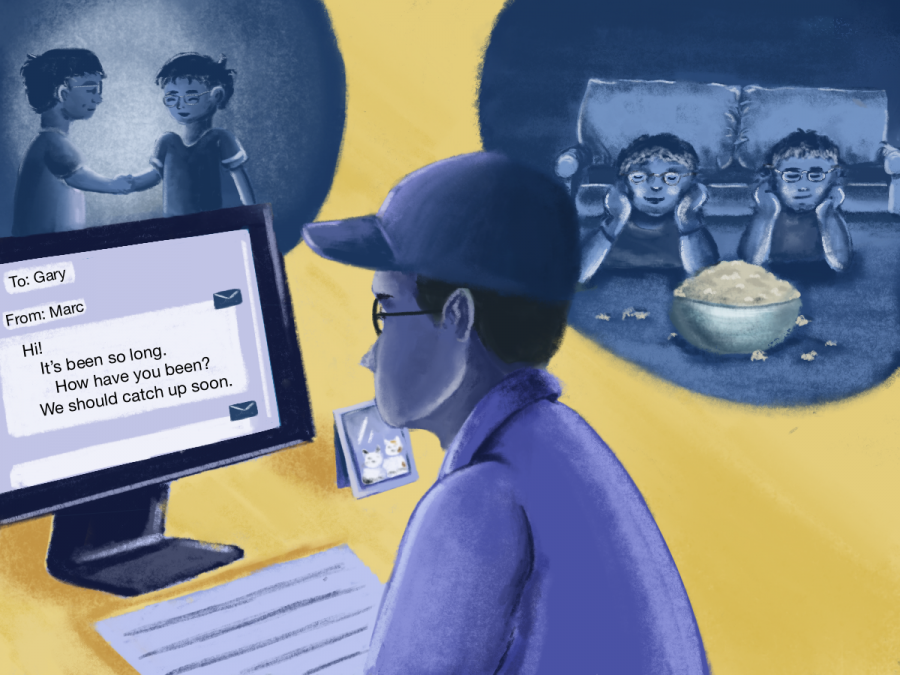A brother lost, a brother found
November 12, 2020
Since childhood, I have longed for a brother.
Somebody who would retrieve my baseball throws, climb trees with me, catch matinees together at the Venice Fox Theater, and share my love of yo-yos and comic books.
Just the simple joys in a boy’s life.
In the summer of 1965, I met the kid next door. Our families had just moved into the new Leadership tract homes in Compton, unincorporated (now city of Carson).
Marc and I were about the same age, 11, and of different ethnic backgrounds. He was Spanish Algerian. I am Japanese American. He spoke English and French. I spoke only English.
However, we shared similarities: both of us wore glasses, he was raised Roman Catholic and I was a Jehovah’s Witness — but neither of us was very religious. Marc had an older sister, and I had a younger sister, we found espionage fascinating and both of us had TV crushes on actress Angela Cartwright (“Lost In Space”).
Our families, coincidentally, had just moved from Venice Beach. We marveled that we had been neighbors all along.
From 1966 to 1971, Marc and I walked or bussed miles to and from Carnegie Junior High in Carson and later, Banning High in Wilmington. So much of our lives were intertwined that I think we strongly influenced each other’s behavior and development.
In those youthful days, he introduced me to astronomy, Pentax cameras, science fiction writing and Moody Blues music, including the song “Eternity Road.” I encouraged him to join me on the cross-country team, indulge in UFO theories, watch the “Green Hornet” TV show, and make voice recordings on my tape recorder.
I learned, or tried, to like everything Marc liked. I think he did the same for me.
We were like Tom Sawyer and Huck Finn on an adventure.
The power of brotherhood can be life turning, as noted in a 2012 manuscript by authors Susan McHale, Kimberly Updegraff and Shawn Whiteman.
They cited various case studies, including “early findings were consistent with the idea that siblings serve as role models (Brim OG, 1958).” And that “some findings suggest that sibling influences are stronger than parental influences and possibly as strong as that of peers (Brook, Whiteman, Gordon, & Brook, 1990).”
As kindred brothers, Marc and I were inseparable. As next-door neighbors — we were very separable. My family moved away in the summer of ’71.
Marc and I drifted apart after high school. Our days were suddenly filled with jobs, marriage and adult responsibilities. Ultimately, our parting was so seamless that it’s hard to recall our last visit.
Still, I never forgot my brother.
In the fall of 2006, my wife Judy and I wanted to add a kitten to our family. We studied the photos on the Pups and Pals website.
She came across two kittens, twin brothers, both wore white coats with patches of either black or brown. Their names were Shiner and Swirl.
Judy and I decided to adopt Swirl.
The more Judy and I thought about the adoption, the more separating the brothers seemed cruel.
I thought about my lost brother Marc.
We adopted both kitties just before Thanksgiving in ‘06. My wife renamed the brothers Willy and Wally. So perfect.
When my wife and I divorced years later, Willy and Wally came to live with me in a one-bedroom Gardena apartment. We were cramped, but the brothers seemed not to mind. They galloped down the narrow hallway, banging into each other at dinnertime just as they did in our spacious Downey home.
Willy loved to chase sparkly reflections on the wall. Wally preferred to lie atop the cat tower, where he could be the watchful observer of the world below. Willy weighed an athletic 14 pounds, while Wally was a sumo cat at near 20 pounds.
They had distinctly different personalities.
Willy was curious and excitable. Wally was aloof and patient. They occupied different areas of the living room in the day. But hung out together at night, near the TV. At dinnertime, Wally waited for Willy to take the first bites.
Then, Wally got sick. He suffered his first seizure in the fall of 2013. From that point, he was prescribed phenobarbital for his epilepsy. He was forever in and out of the vet’s office.
Willy was the healthy one. He would breeze through his twice-yearly medical checkups. He was the brother with boundless energy. Until one Saturday, when I found Willy hiding in a corner, struggling to breathe. I rushed him to E.R.
A cardiologist gave me sad news: “Willy’s experiencing heart failure.”
The cardiologist said that Willy’s heart was so damaged, his life expectancy could be until the end of the day.
An hour later, Willy was gone. He died on Aug. 31, 2015.
I wept off and on for a long time. Not just for me, but for the life that Willy shared with Wally. In the days and weeks to follow, I could sense Wally’s loss.
I gave Wally as much love and attention as I could in Willy’s absence. We established new routines. His epilepsy was under control. But as Willy’s identical twin, he too had a defective heart that was slowly failing him.
Wally died on Jan. 31, 2018.
A friend reminded me that now Willy and Wally were together again. Running side-by-side along some heavenly road.
Losing Willy and Wally stirred memories of my lifelong friend, my kindred brother Marc. I wondered how he was doing. I wondered about his family. Wondered if he ever thought of me after all these decades.
In the last 20 years, I searched for him online without luck.
Then something quite miraculous happened late this past summer.
I received a message through LinkedIn, an online business-connection platform. Marc congratulated me on a work anniversary.
I was overjoyed. Marc and I traded emails, then followed with a phone call. We talked for hours. Our conversation returned us to a time of wonder, adventure and boyhood.
It felt like we were time traveling.
“My mom used to laugh how we talked all the way, as we walked to and from school,” Marc said. “Then we talked another hour on our front porches, and then talked in the evening on the phone for another couple of hours. And we did this every day. She couldn’t imagine that we had so many things to discuss.”
I reminded him of our long-distance runs through the neighborhood on summer evenings. Marc recalled nights when we would kick back on my rooftop, sharing binoculars and gazing at the moon and the Milky Way.
Our view seemed infinite and unclouded. We were just kids then, looking ahead. Now in our 60s, Marc and I are mature men looking back.
As brothers reunited, we still have much to say. So many things yet to discuss as we resume our walk down eternity road.

